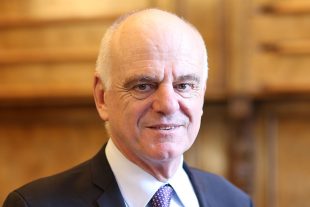 We live in a world that is constantly changing. Uneven climates, novel diets and new ways of communicating impact on all of our lives. Amidst the changes, good health is a precious asset and we must maintain it carefully. Scarce resources, new diseases, and resurging threats from microbes that resist antibiotics, all challenge our efforts to maintain good health.
We live in a world that is constantly changing. Uneven climates, novel diets and new ways of communicating impact on all of our lives. Amidst the changes, good health is a precious asset and we must maintain it carefully. Scarce resources, new diseases, and resurging threats from microbes that resist antibiotics, all challenge our efforts to maintain good health.
Today, 7 April, is World Health Day so perhaps timely to reflect on these issues. The terrible 2014 West Africa Ebola outbreak killed 11,000 people and certainly grabbed the headlines. Sweden, Britain and many other nations helped the people of West Africa to respond. I recall working with the late Professor Hans Rosling who volunteered in West Africa when I was leading the UN’s response to Ebola. Hans helped us responders to learn the utility of good data and careful interpretation in appreciating how the outbreak was progressing. The way he did it was a lesson in humanity: we loved him for it.
If a disease can be compared to music, the Ebola outbreak in late 2014 was dramatic, discordant and loud. But what about those illnesses that are quieter and tricky to spot? This year, the World Health Organization (WHO) asks that we unveil the silent suffering of millions of people who are affected by mental illnesses. The commonest of these, depression, affects more than 300 million people worldwide and can vary greatly in terms of severity. Just like Ebola, just like malaria, depression is a killer. Sadly, suicide is the second leading cause of death in 15-29 year olds and we know that people affected by depression can turn to drugs, food or other addictions which cause physical harm.
There are many more numbers I could deploy, but I am sure you get my point. Quite simply it is time to pay real attention to mental illness, to invest more in mental health. Not only is it the right thing to do, it is smart use of finance. Investment in mental health makes economic sense: every US$ 1 invested in scaling up treatment for depression and anxiety leads to a return of US$ 4 in better health and ability to work.
We all know that prevention is better than cure – whether we are maintaining health, avoiding disasters or managing money. The rubric certainly applies to non-communicable diseases such as diabetes, heart disease and mental illness. In my experience the people and government of Sweden understand that maintaining health has benefits in its own right – enabling everyone to play active roles in their development. This is particularly the case for women and children, especially with regard to women being assured of their reproductive and sexual health, enabling them to contribute fully to sustainable development in line with the 2030 agenda.
Sweden and the UK have joined forces with increasing number of nations from around the world to counter the resistance of microbes to the medicines that are used to control them. The resistant microbes are sometimes called “superbugs”. Concerted action to tackle anti-microbial resistance, or AMR, is needed – bringing together governments, civil society, business and scientists. Recently I was inspired by visiting Hans Rosling’s former Alma Mater, the pioneering Karolinska Institutet, where scientists are undertaking world class research on AMR. They also shared with me their findings about ways in which violent conflict leads to long-standing physical and mental trauma: an interest of mine following my work in various conflict zones. We must all do more to equip the brave men and women who run into violent spaces to help casualties. Indeed, Sweden’s own Foreign Minister Margot Wallstrom was such a trailblazer when working the first UN Special Envoy on preventing sexual violence in conflict.
We all expect the WHO to highlight health challenges and share experiences from across the world on what works best. I want it to become more catalytic, more dynamic and more responsive. It must know what is happening in outbreaks and conflicts: it must speak out for people in need and for effective partnering. Links between its presence in countries, its regional directorates and its Geneva headquarters must be super-efficient with every last cent well-spent. Quite simply, WHO is ready for an upgrade.
Throughout my 40 year career I have demonstrated a strong commitment to human rights, striving to ensure that policies put people first and help improve their standards of living. I am a firm believer in “leaving no one behind” and this will be at the heart of my work if I have the privilege of becoming WHO’s Director-General. I am committed to ensuring that the most vulnerable such as migrants and refugees are not forgotten, that women get access to the health services they need and that people everywhere, can look forward to a healthier future.
Dr David Nabarro
Recent Comments